Intro
Unlock the power of VBA date and time functions to streamline your workflow. Discover 8 essential functions to manipulate dates and times in Excel, including formatting, calculation, and conversion techniques. Master VBA date and time handling with functions like DateAdd, DateDiff, and Format, and boost your productivity with these essential tools.
Working with dates and times is a common task in VBA programming, and mastering the essential functions can save you a significant amount of time and effort. Whether you're working with Excel, Word, or another Office application, understanding how to manipulate dates and times is crucial for creating effective macros and automating tasks. In this article, we'll explore eight essential VBA date and time functions that you need to know.
The Importance of Date and Time Functions in VBA
Before we dive into the essential functions, let's briefly discuss why date and time functions are so important in VBA. When working with dates and times, accuracy and consistency are crucial. A small mistake can lead to incorrect results, and that can have serious consequences in business or financial applications. VBA provides a range of built-in functions that make it easy to work with dates and times, from simple tasks like adding or subtracting dates to more complex operations like calculating time differences or determining the day of the week.
1. Date Function
The Date function is one of the most basic date functions in VBA, and it returns the current system date.
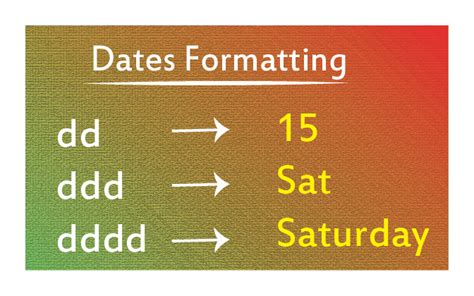
Sub GetCurrentDate()
MsgBox Date
End Sub
This function is useful when you need to capture the current date in your code, such as logging events or creating timestamps.
2. Time Function
The Time function returns the current system time.
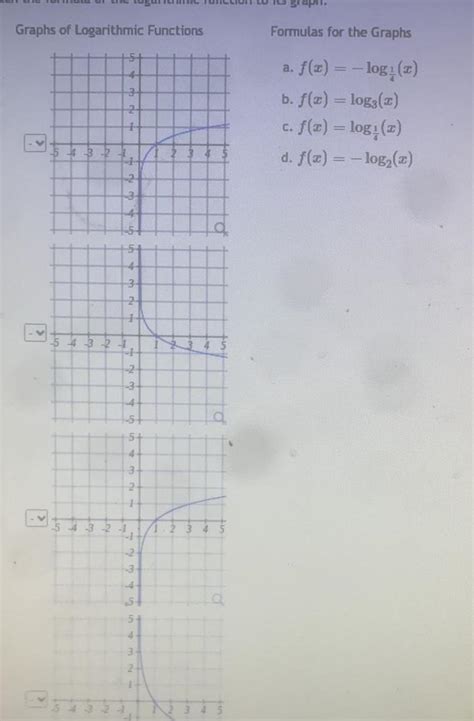
Sub GetCurrentTime()
MsgBox Time
End Sub
Like the Date function, this is useful for capturing the current time in your code.
3. Now Function
The Now function returns the current system date and time.
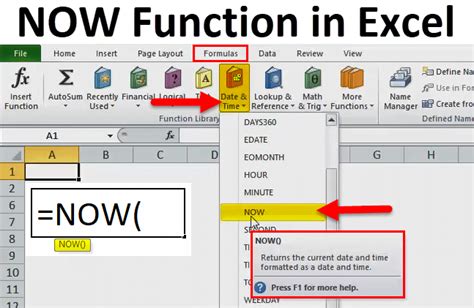
Sub GetCurrentDateTime()
MsgBox Now
End Sub
This function is useful when you need to capture both the date and time in a single value.
4. DateAdd Function
The DateAdd function adds a specified interval to a date.
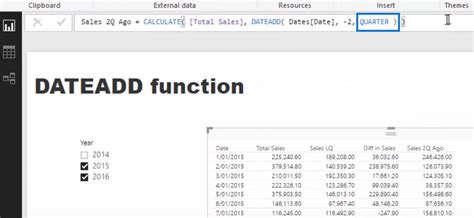
Sub AddDaysToDate()
Dim currentDate As Date
currentDate = Date
MsgBox DateAdd("d", 7, currentDate)
End Sub
This function is useful when you need to add or subtract a specific interval from a date.
5. DateDiff Function
The DateDiff function returns the difference between two dates in a specified interval.
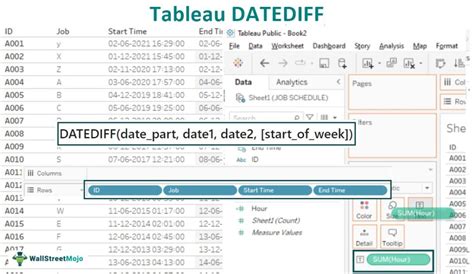
Sub GetDateDifference()
Dim startDate As Date
Dim endDate As Date
startDate = Date
endDate = Date + 7
MsgBox DateDiff("d", startDate, endDate)
End Sub
This function is useful when you need to calculate the difference between two dates.
6. Weekday Function
The Weekday function returns the day of the week corresponding to a date.
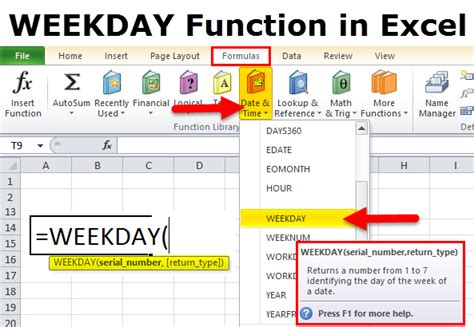
Sub GetDayOfWeek()
MsgBox Weekday(Date)
End Sub
This function is useful when you need to determine the day of the week for a specific date.
7. Hour Function
The Hour function returns the hour of a time.
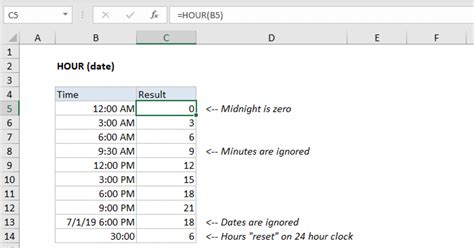
Sub GetHour()
MsgBox Hour(Time)
End Sub
This function is useful when you need to extract the hour from a time value.
8. Minute Function
The Minute function returns the minute of a time.
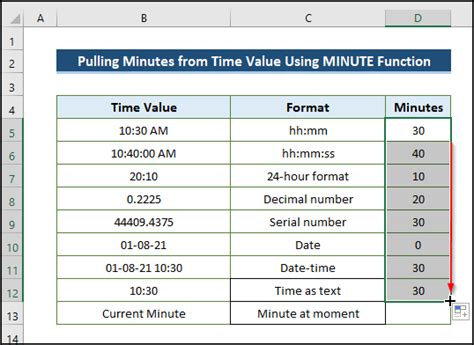
Sub GetMinute()
MsgBox Minute(Time)
End Sub
This function is useful when you need to extract the minute from a time value.
Gallery of VBA Date and Time Functions
VBA Date and Time Functions Gallery
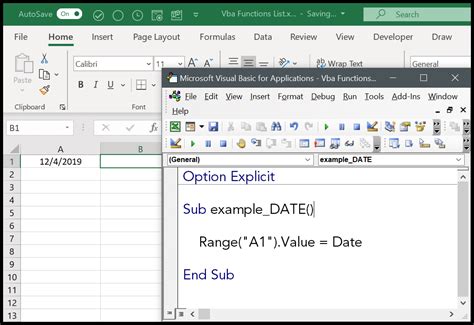
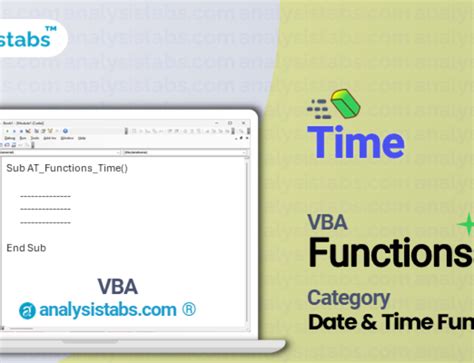
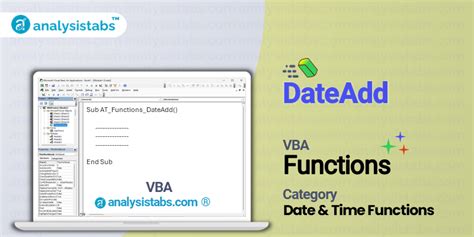
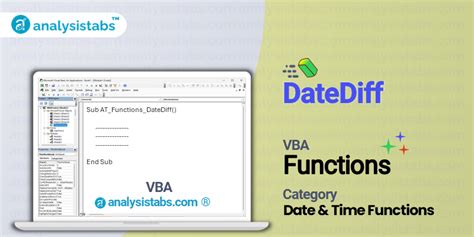
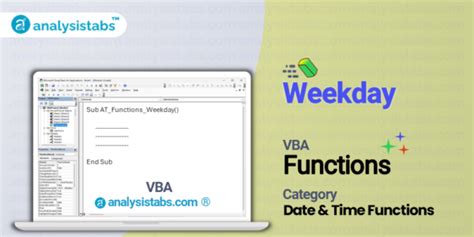
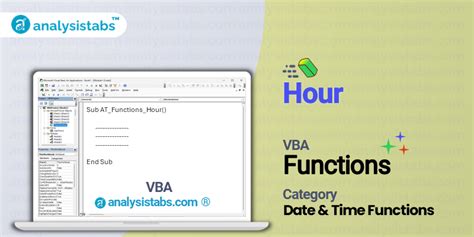
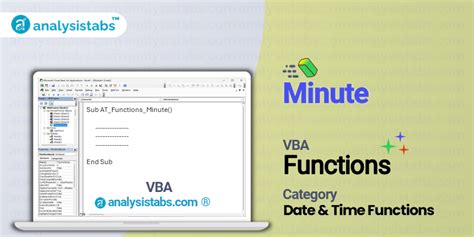
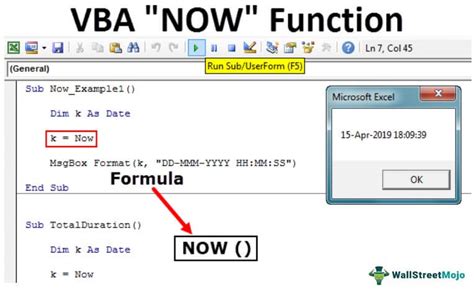
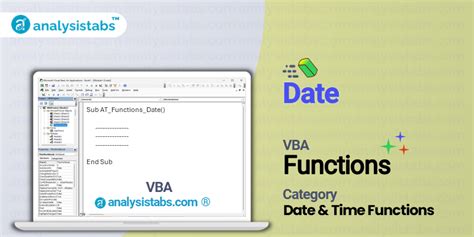
Take Your VBA Skills to the Next Level
Mastering VBA date and time functions is an essential skill for any aspiring VBA developer. With these eight essential functions, you'll be able to work with dates and times with ease and accuracy. Whether you're automating tasks, creating reports, or building complex applications, understanding how to manipulate dates and times is crucial. Take your VBA skills to the next level by practicing these functions and exploring more advanced topics.
We hope this article has been helpful in introducing you to the essential VBA date and time functions. Do you have any favorite VBA functions or tips to share? Let us know in the comments below!
